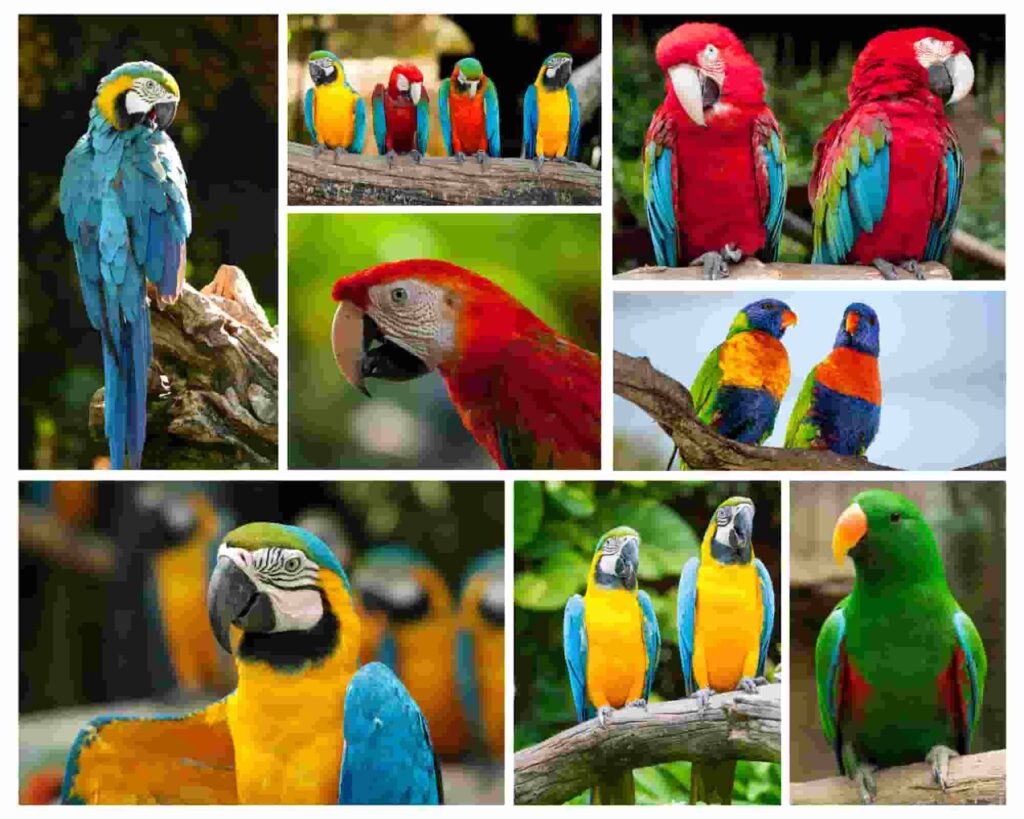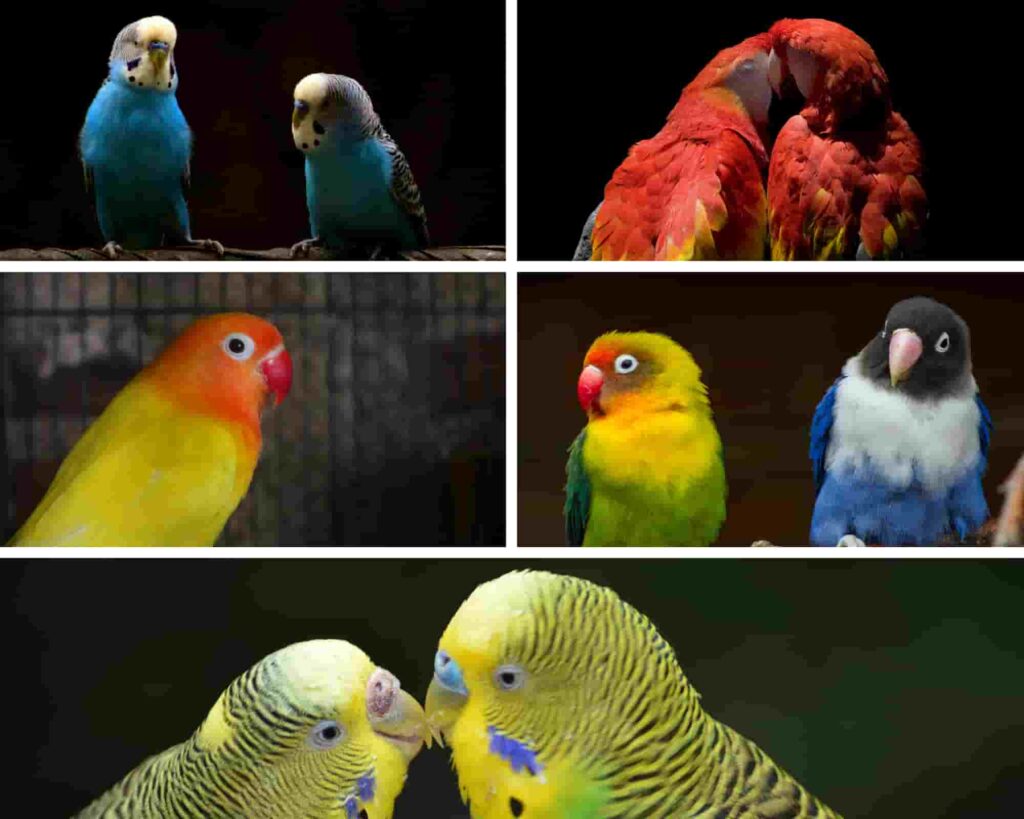If you’re a Birds Love owner, you might have noticed that your feathered friend loves perching on your shoulder.
Whether it’s a parrot, cockatiel, or budgie, this behavior is common in pet birds, but you might be wondering: why do they do it? In this guide, we’ll explore the reasons behind this affectionate behavior, what it means for your relationship with your bird, and how you can encourage healthy bonding.
1. Birds See You as Part of Their Flock
Birds are social animals, and in the wild, they live in flocks for protection, social interaction, and companionship. In a domestic setting, they view their human owners as part of their “flock.”
When your bird sits on your shoulder, it’s showing trust and affection, much like it would with other birds in the wild.

Why Your Bird Chooses You:
- Safety: Birds instinctively seek higher ground to feel safe. Your shoulder provides a comfortable, elevated perch where they can survey their surroundings.
- Trust: By sitting on you, your bird is telling you that it feels secure in your presence. This behavior is often a sign of strong bonding between you and your pet.
2. Comfort and Warmth
Birds are attracted to warmth, and your shoulder is a cozy spot for them. Birds often seek out warm areas in your home, such as near windows or heat sources.
As a source of body heat, your shoulder offers a spot where your bird can feel comfortable, especially if it’s a cold day.
Why Birds Like the Warmth:
- Thermal Regulation: Birds are cold-blooded, so they may seek warmth to help regulate their body temperature.
- Comfort: Your body heat provides a comforting environment, helping your bird relax and feel at ease.
Also read: the-ultimate-10-guide-can-parrots-eat-carrots
3. Desire for Attention and Bonding
Birds thrive on social interaction, and they often seek the attention of their human companions. When your bird perches on your shoulder, it’s a way of asking for your affection. This behavior helps reinforce the bond between you and your pet, and it’s a sign that your bird enjoys your company.
How Birds Show Affection:
- Preening: Your bird might nibble on your hair or gently peck at your skin. This is a form of grooming, which is a common social behavior in birds, indicating trust and affection.
- Chattering: Birds often “talk” when they’re close to their owners, which is another way of strengthening the bond.
4. Exploration and Playfulness
Birds are curious by nature and love to explore their environment. Sitting on your shoulder gives them the perfect vantage point to observe what you’re doing and interact with their surroundings.
It’s also an opportunity to engage in playful behavior. Your shoulder might serve as a “launchpad” for your bird to jump onto nearby objects or play with items you’re holding.
Playful Behavior Signs:
- Head Bobbing: If your bird bobs its head while on your shoulder, it may be mimicking your movements or signaling excitement.
- Chewing or Pecking: Birds might nibble on your clothes, jewelry, or even your ear, as part of their playful exploration.
5. Safety and Protection
Birds are naturally prey animals, and they have a strong instinct to protect themselves from predators.
When your bird sits on your shoulder, it might feel more secure being close to you. From a high vantage point, they can keep an eye out for potential dangers in their environment, knowing that you are there to protect them.
How Birds Perceive Safety:
- Surveillance: Sitting on your shoulder gives the bird a clear view of its surroundings, which helps them feel more alert and secure.
- Emotional Comfort: Being near you helps ease the bird’s stress, as it knows it is safe with you, its trusted “flock member.”
Read more: How Birds Perceive Safety:
6. Mimicking Behavior
Birds are highly social and often mimic the behaviors of those they trust. If your bird has seen you sitting or standing with it on your shoulder, it may start doing the same thing on its own.
This mimicry reinforces the bond between you and the bird while also offering the bird a chance to learn more about its human companion.
How Birds Mimic:
- Body Language: Birds often copy the body language of their owners. If you lean your head down or move, your bird may try to follow the motion.
- Sounds and Calls: Birds will often repeat sounds or words they hear frequently, including your voice or even laughter.
7. Training and Positive Reinforcement
Sometimes, a bird’s desire to sit on your shoulder can be a learned behavior. If you’ve trained your bird to perch on your shoulder through positive reinforcement, it may begin to associate this behavior with rewards. Over time, this becomes a comforting routine that both you and your bird enjoy.

Training Tips:
- Use Treats: When your bird hops onto your shoulder, reward it with a small treat. This helps reinforce the behavior.
- Be Patient: Training should be done slowly and consistently. Some birds may be more hesitant to approach, so it’s important to respect their comfort zones.
8. Shoulder Perch as a Territory
For some birds, your shoulder may become their “territory.” This can especially be true for birds that are more dominant or territorial.
By sitting on your shoulder, they may feel they are in control of their environment and have a clear claim to the space around you. This behavior is often observed in birds with strong personalities, like parrots.
Also read: apples-for-parrots-what-you-need-to-know-10-fact
Territorial Behavior:
- Preening: A bird might be more possessive of you if it feels you’re its “territory” and will preen you to reinforce its bond.
- Vocalizations: Your bird may chirp or call more loudly when other people or pets approach.
9. Signs of Affection You Should Look For
When your Birds Love sits on your shoulder, it’s often a sign of affection, but there are other signals you should look for to ensure your bird is comfortable and happy. These include:
Positive Signs:
- Calm Behavior: If your bird is calm and relaxed on your shoulder, this is a positive sign of bonding.
- Mouth Opening: A bird that opens its mouth and makes soft chirping sounds may be trying to communicate happiness or affection.
Negative Signs:
- Biting: If your bird starts nibbling or biting aggressively, it could be a sign of irritation or overstimulation. It’s important to respect your bird’s boundaries.
- Flapping or Restlessness: A bird that is uncomfortable on your shoulder might flap its wings or try to fly off. If this happens, give your bird some space to calm down.
FAQ’s:
Q1: Is it safe to let my Birds Love sit on my shoulder?
A1: Yes, as long as your bird is well-trained and you remain vigilant, it can be a safe and enjoyable bonding experience. Be mindful of sudden movements that could startle your bird.
Q2: Why does my Birds Love nibble on my ear when it’s on my shoulder?
A2: Birds often nibble as a form of affection or exploration. It’s also a natural behavior they use to interact with their environment.
Q3: How do I train my Birds Love to sit on my shoulder?
A3: Start by building trust through consistent positive reinforcement, like offering treats when your bird perches near you. Gradually encourage it to hop onto your shoulder.
Q4: Can my bird get too attached to me?
A4: While strong bonds are healthy, it’s important to encourage independence as well. Give your bird time to socialize with others to prevent over-attachment.
By understanding the reasons behind why birds love sitting on shoulders, you can enjoy this affectionate behavior while ensuring your pet’s well-being.
Conclusion
The next time your Birds Love hops onto your shoulder, remember that it’s not just a cute behavior—it’s a sign of affection, trust, and a deep bond between you and your feathered companion. Birds enjoy this close contact for comfort, warmth, attention, and social bonding.
By understanding the reasons behind this behavior, you can foster a stronger relationship with your bird and ensure its happiness.
